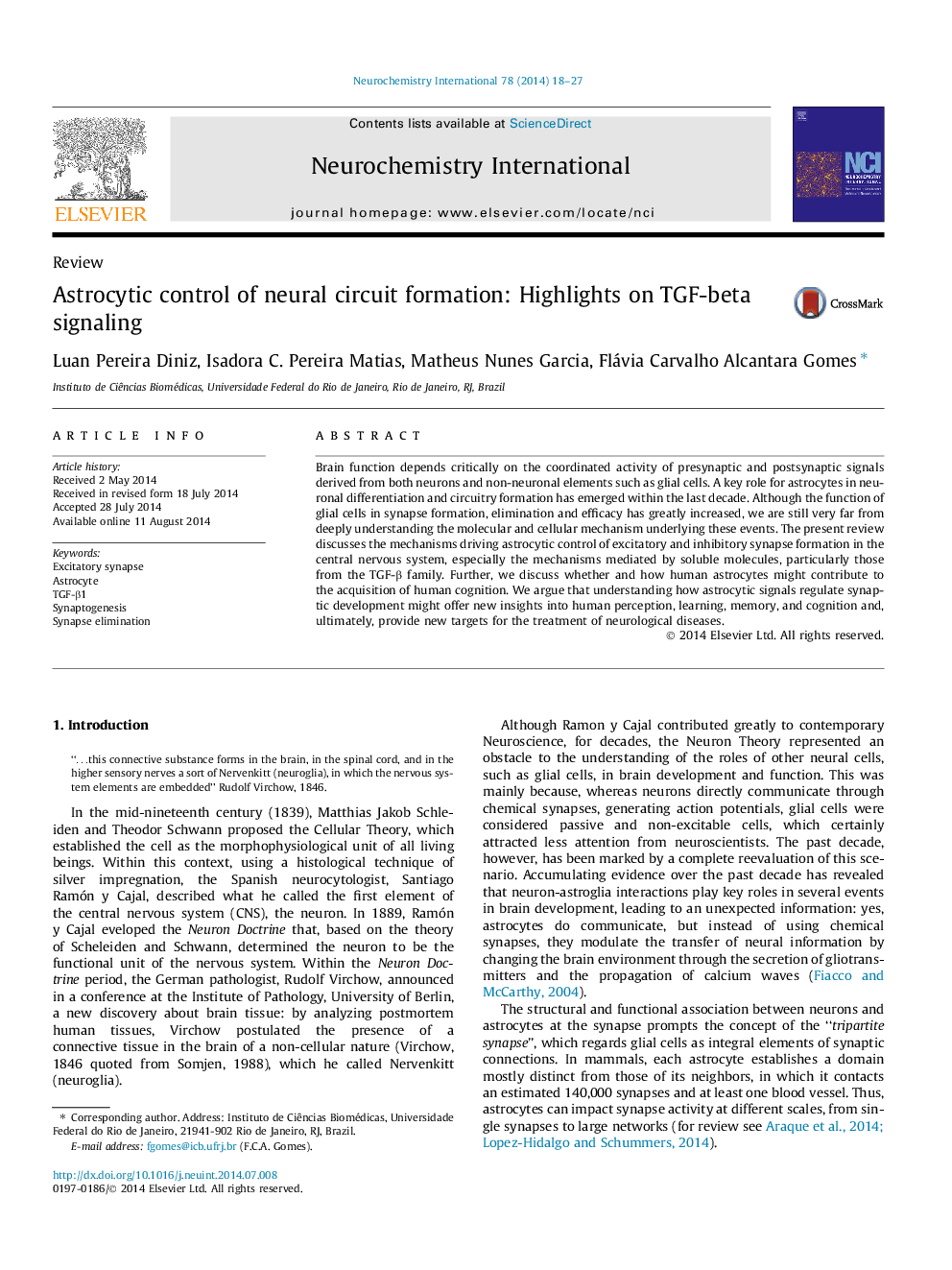| Article ID | Journal | Published Year | Pages | File Type |
|---|---|---|---|---|
| 8479185 | Neurochemistry International | 2014 | 10 Pages |
Abstract
Brain function depends critically on the coordinated activity of presynaptic and postsynaptic signals derived from both neurons and non-neuronal elements such as glial cells. A key role for astrocytes in neuronal differentiation and circuitry formation has emerged within the last decade. Although the function of glial cells in synapse formation, elimination and efficacy has greatly increased, we are still very far from deeply understanding the molecular and cellular mechanism underlying these events. The present review discusses the mechanisms driving astrocytic control of excitatory and inhibitory synapse formation in the central nervous system, especially the mechanisms mediated by soluble molecules, particularly those from the TGF-β family. Further, we discuss whether and how human astrocytes might contribute to the acquisition of human cognition. We argue that understanding how astrocytic signals regulate synaptic development might offer new insights into human perception, learning, memory, and cognition and, ultimately, provide new targets for the treatment of neurological diseases.
Related Topics
Life Sciences
Biochemistry, Genetics and Molecular Biology
Cell Biology
Authors
Luan Pereira Diniz, Isadora C. Pereira Matias, Matheus Nunes Garcia, Flávia Carvalho Alcantara Gomes,
